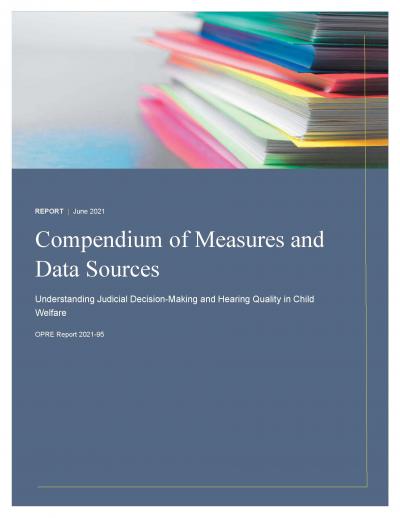Understanding Judicial Decision-Making and Hearing Quality in Child
Welfare
The child welfare court process is intended to help protect abused and neglected children, encourage family stability, support child well-being, and provide children who enter the foster care system with a safe and permanent living situation when they exit. Judges presiding over child abuse and neglect cases are required by federal and state law to make timely decisions to help the child move to a permanent home as quickly as possible. These decisions, made during a series of hearings, must ensure the child’s safety, well-being, and timely permanency. The Compendium of Measures and Data Sources (Compendium) summarizes the types and range of measures (i.e., specific research tools/instruments like interviews and surveys used to collect data) and publicly available data sources used to better understand judicial decision-making and hearing quality in child welfare. This is an emerging area of research which is reflected in the information available about each measure (e.g., few measures reported psychometric information).
OPRE Report 2021-95 Released June 2021
Authors
Alicia Summers, Ph.D., Data Savvy Consulting
Sophia Gatowski, Ph.D., Systems Change Solutions
Anne Fromknecht, M.P.H., James Bell Associates
Scott Trowbridge, J.D., American Bar Association Center on Children and the Law
Submitted to
Christine K. Fortunato, Ph.D., Contract Officer’s Representative
Alysia Y. Blandon, Ph.D., Contract Officer’s Representative
Sarah Blankenship, Ph.D., Project Specialist
Office of Planning, Research, and Evaluation
Administration for Children and Families
U.S. Department of Health and Human Services

